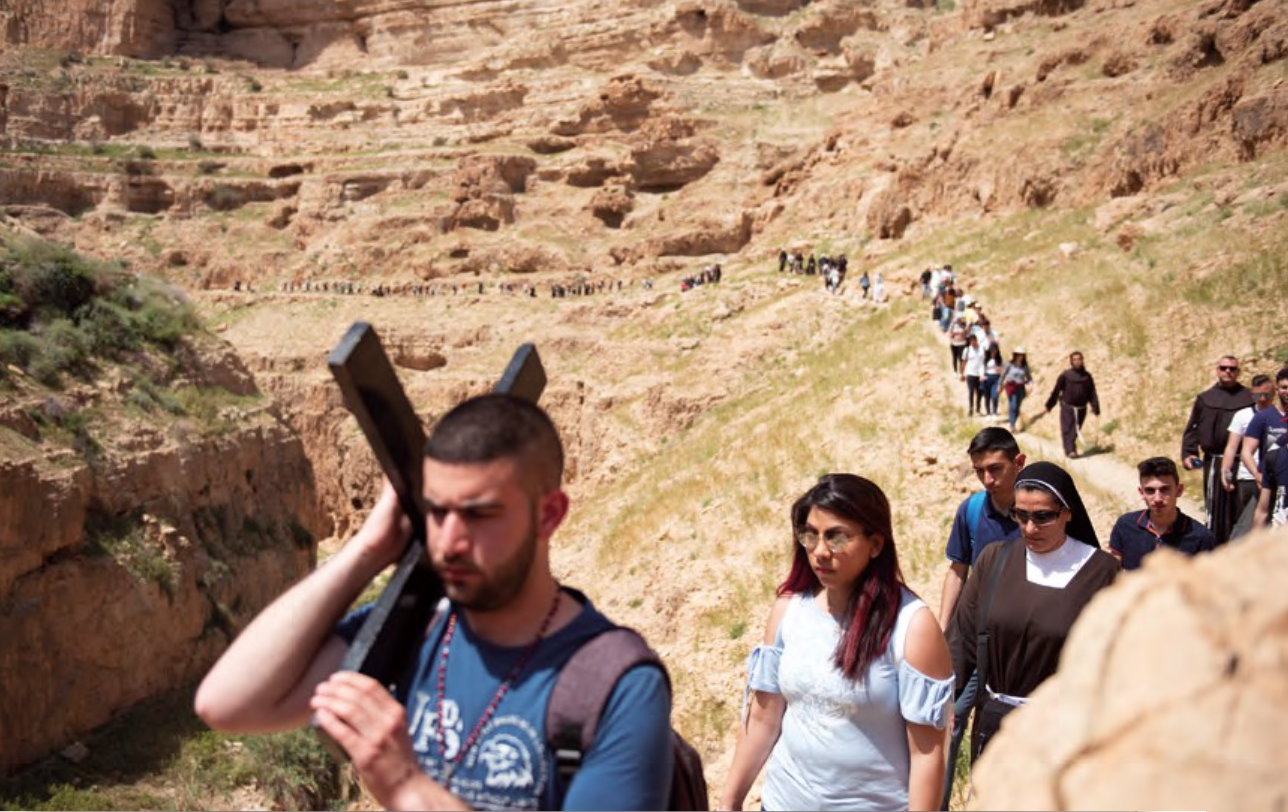
A September 2019 survey of young Christians aged 25 to 18 in the city of Jerusalem offers contrasting results.
Skeptical of the actions of the churches and all existing institutions, youth nevertheless appeal to them for hope.
By Marie-Armelle Beaulieu
“We don't want anything from the Church! We just want the priest to be closer to us. My grandfather told me that in the past, the priest would take to the streets to meet and talk to people – mainly young people.”
It sounds like a cry from the heart. It is the cry of one of the 700 young Christians in the city who participated in a survey of the Christian youth in Jerusalem. Sponsored and coordinated by the Catholic Relief Organizations (CCAO) of the Latin Diocese, the study is entitled “Young Christians of Jerusalem: Integrate or Emigrate.”
Although the Churches have been involved in health, social, and educational services for more than a century, young people feel they are the great forgotten. This reproach is corroborated by a previous survey which showed that, of the nearly 130 Christian institutions present in the holy city, only 23 had at least one program specifically aimed at young people, and that less than 8% of the institutions’ resources were allocated to projects for young people. Yet out of 9,700 Palestinian Christians in Jerusalem, 42% are between 25 and 8 years old! Suffice it to say that if the churches do want to help the community, they would benefit from paying renewed attention to its youth and their aspirations.
Curbing emigration
As far as the Catholic Church is concerned, things are starting to move. At the end of January, about 50 people met at the parish of Saint-Jacques de Beit Hanina (in the suburbs of the greater metropolitan area of Jerusalem): priests, school principals, and other involved people discussed matters which had been brought to their attention. At the end of this workshop they made recommendations in three areas: parish life and pastoral activities; schools and education; youth centres and clubs.
Not everything can be resolved in one meeting, but there was a certain urgency. Sixty per cent of the young people had expressed a desire to emigrate, and not just for reasons of education. This is all the easier to understand since 58% of them said they had seen one of their aunts or uncles emigrate in the last ten years, and 31% said they had a relative leave in the last five years. “Despite the high percentage of young Christians who want to leave (60%), this rate drops to 37.79% if the same young Christian succeeds in establishing a stable life in Jerusalem (career, family, friends, etc.). The study goes on to say, however, that only 33% of young Christians say they can achieve their ambitions in Jerusalem, unless the political, religious and social conditions change.” But for what are they aspiring, that could curb this desire to leave?
Not all means are within the hands of the churches – most notably the political and economic details of life. According to The Economist, Jerusalem is among the 10 most expensive cities to live in; and when scarce housing is available, it takes up 40% of the monthly budget.
Only 34% of youth go to church; most 15-23 year-olds (78%) criticize the management and activities of Christian institutions; 68% criticize the lack of communication between them and priests; and 21% of young Christians believe that their priests are unable to understand their aspirations and the challenges they face. Nevertheless, they turn to the Church for their strong sense of identity, and 93% say they are proud to be Christians of the Holy Land.Their expectations are many and varied. Young people want spiritual and human accompaniment from the Church. They no longer want to fear priests and religious but want to be able to speak with them and not only hear moralizing and the catechism. They are looking for intellectual and spiritual explanations so they can live in an environment where Christianity is not the majority religion and so they will be able to respond to the arguments systematically used by Islamic preachers. They want to hear more about their heritage and their Christian culture at the same time that they want to speak better Hebrew. They would like better direction toward possible career options and wonder whether some pilgrims to the Holy Land could provide “skills sponsorship”— i.e. share their knowledge of a professional activity that could be developed in the Holy Land. All this could happen in business incubators initiated jointly by all the Christian denominations.
As for the rest of their dreams, these could extend into a long and varied list. Their message was heard, however, as was evidenced by the meeting of priests, teachers and directors. Hopefully, this meeting will not remain ineffectual.